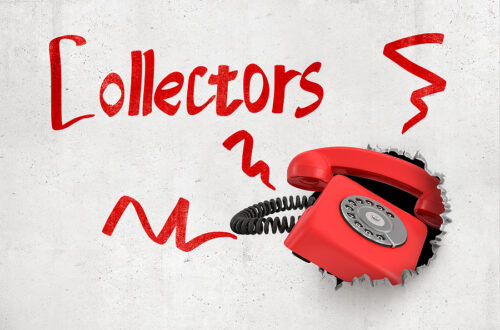The business of debt collection can be intense and stressful for the person on the receiving end of the call. Debt collectors can be relentless and will stop at nothing to reach the person owing the debt. However, consumers do have rights, and it is important that they be aware of what those rights are in the event they are on the receiving end of creditor harassment.
Fair Debt Collection Practices Act
Consumers are protected from abusive and unfair debt collection practices through the Fair Debt Collection Practices Act (FDCPA). The FDCPA provides rules that third-party debt collectors must follow when they contact consumers to collect upon the debt.
The following acts are specifically prohibited under the FDCPA:
- Repetitive phone calls from the debt collector with the intent to annoy, harass or abuse the person answering the phone;
- Using profane or obscene language when communicating to collect the debt;
- Threatening physical violence against the person answering the phone;
- Using deception or misleading collection practices, including lying about how much is owed and that the person calling is an attorney when he or she is not; and
- Making any threats to do something that either the debt collector has no intention of doing or does not have the legal right to do.
The consumer has the right to send a letter to the debt collector informing them that they must cease and desist communication with the consumer due to their violations of the FDCPA.
Depending on how extensive the abusive tactics and harassment are, the consumer can sue the debt collector under the FDCPA. This lawsuit can include damages, as well as the consumer’s attorney’s fees for having to file the case. Damages can be even more extensive if the debt collector ignores the consumer’s written cease and desist letter and continues the abusive tactics.
Tactics to Keep in Mind
Keep in mind that these debt collectors are highly skilled at antagonizing the person on the other end of the phone. Do not fall prey to their tactics of intimidation and fear. They usually record these conversations in hopes that they can get the person to say something that will incriminate them or tie them to the debt. Whatever you do, stay calm but firm, and keep the communication brief.
It helps to keep records of these conversations and contacts in the event the consumer does wish to file an FDCPA claim. The more letters, text messages, emails and phone calls that are made and recorded, the stronger the consumer’s case will be. When talking with a collector, be sure to get that person’s name, the name of the company for whom he or she works, and a call back number.
One recommendation that could also help the consumer’s case is to ask for written verification of the debt. Never assume that the collector is providing accurate information. Once this information is requested, the collector has five days from the initial contact to provide this verification including the following information:
- The amount of the debt;
- The name of the original creditor;
- Information showing that the person has 30 days to dispute the validity of the debt.
If any inaccurate information is provided by the debt collector, this could be used as further proof that they are exercising unethical debt collection practices under the FDCPA.
If you have questions on this topic or are in financial crisis and considering filing for bankruptcy, contact an experienced Miami bankruptcy attorney who can advise you of all of your options. As an experienced CPA as well as a proven bankruptcy lawyer, Timothy Kingcade knows how to help clients take full advantage of the bankruptcy laws to protect their assets and get successful results. Since 1996 Kingcade Garcia McMaken has been helping people from all walks of life build a better tomorrow. Our attorneys’ help thousands of people every year take advantage of their rights under bankruptcy protection to restart, rebuild and recover. The day you hire our firm, we will contact your creditors to stop the harassment. You can also find useful consumer information on the Kingcade Garcia McMaken website at www.miamibankruptcy.com.
Related Resources:
https://www.thebalance.com/how-to-stop-debt-collector-harassment-4107936
https://www.consumerfinance.gov/ask-cfpb/what-is-harassment-by-a-debt-collector-en-336/

